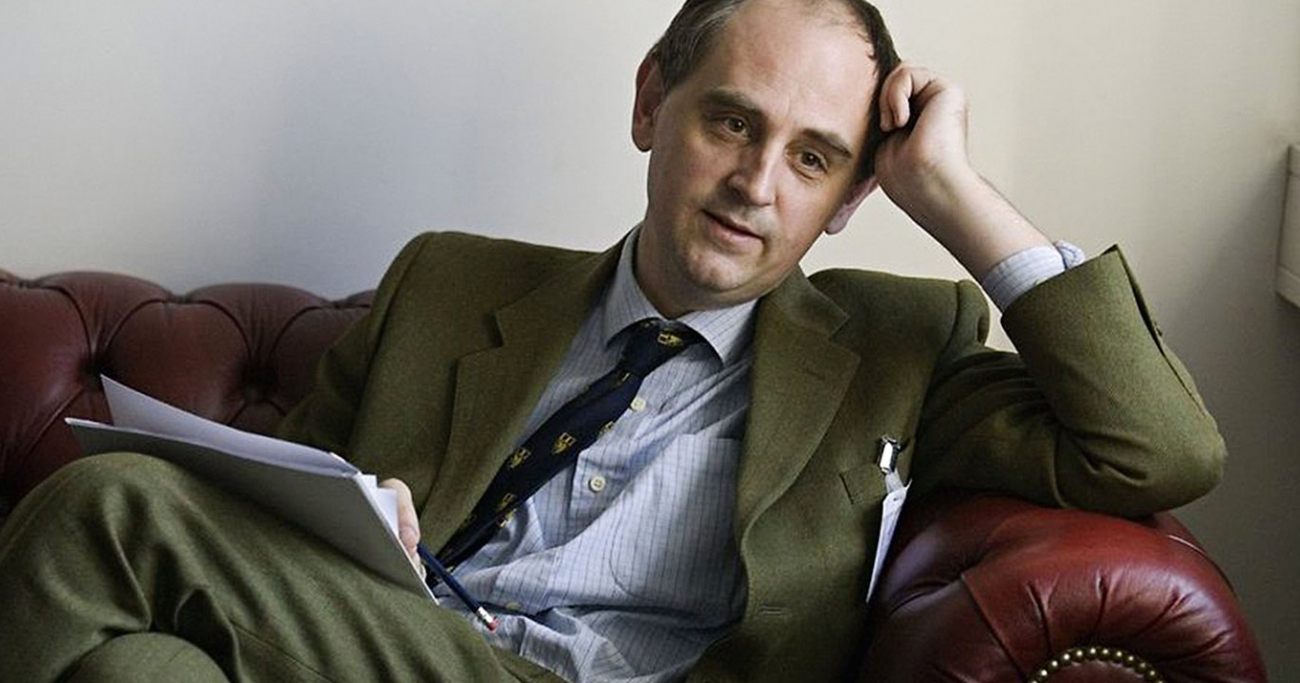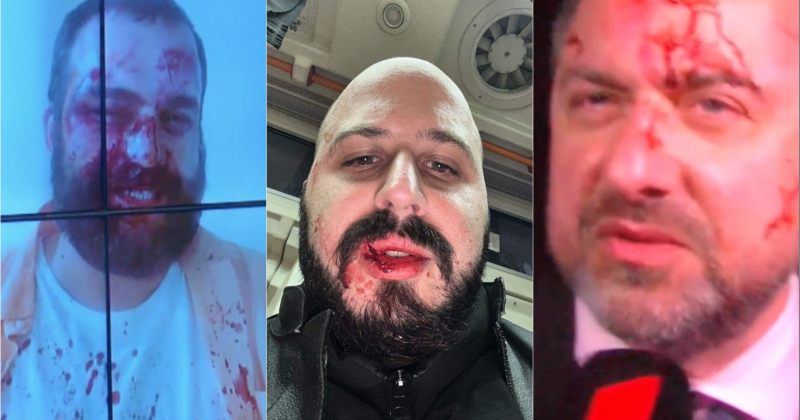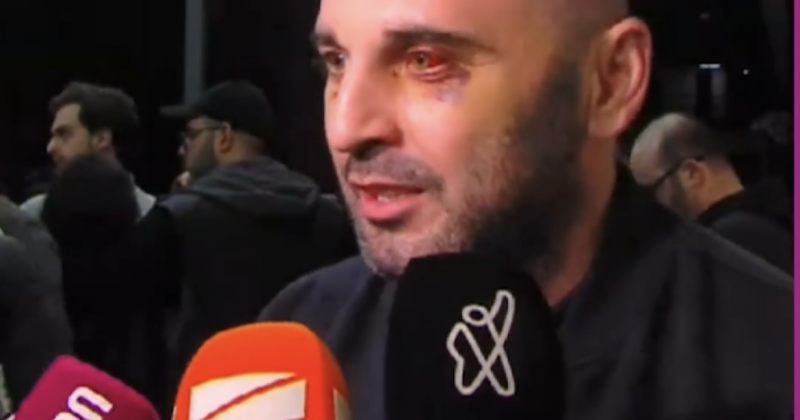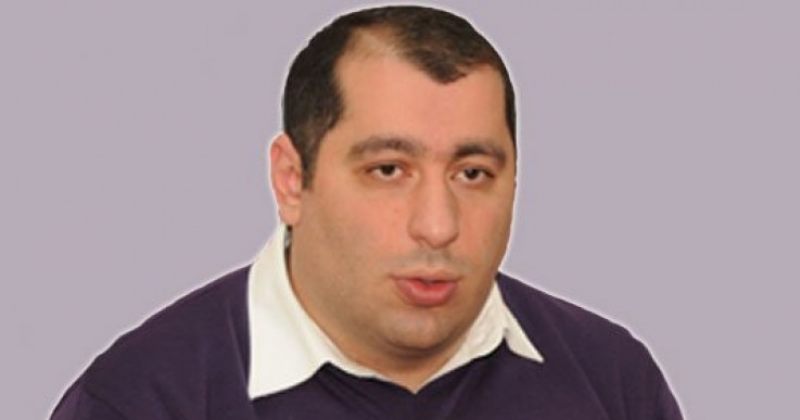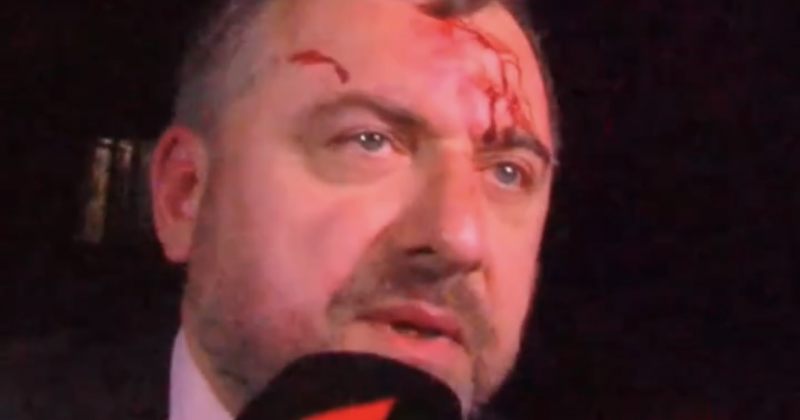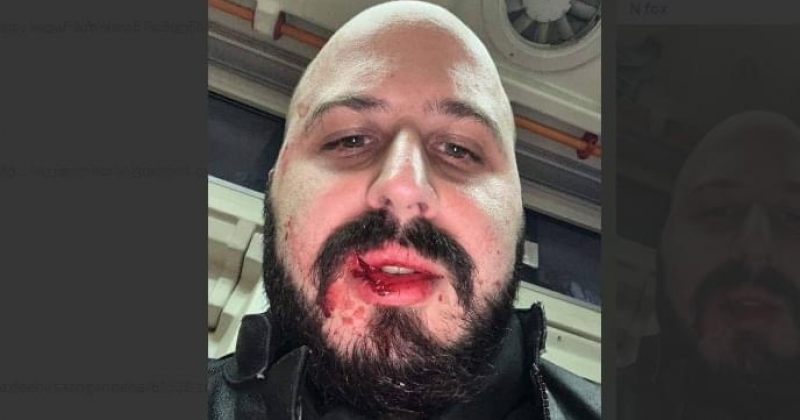On 11 December, the Tabula TV company broadcast an interview with Edward Lucas, the international editor of The Economist. Tamar Chergoleishvili, the editor-in-Chief of Tabula, interviewed Mr. Lucas about the ongoing protests in Ukraine, the importance of the Eastern Partnership for its member states, the role of the EU, Russia's attempts to influence its neighboring countries and Georgia's prospects.
You have said that whether Europe likes it or not it is engaged in a geopolitical struggle with Russia. Bearing this context in mind, what is your assessment of the Vilnius summit?
Really, this summit brought a very bad result and it was a defeat for Europe. It is worse because we do not realize that it was a defeat. I think the assumption of this partnership was basically wrong and so I was never very optimistic about the outcome.
But the fact is that Ukraine is the swing country; if we don't get Ukraine right, there is very little chance of anything else going right. At the last minute the Ukrainian leadership decided it preferred the combination of carrots and sticks from Moscow than the offer the EU could make. That was a very serious setback indeed.
We often hear from Western leaders that Russia has no power to veto NATO and EU enlargement. What is you take on this assertion?
Russia clearly does have a very strong voice in this [process] because there are a lot of European countries who are keen to have good relations with Russia. They don't want to rouse Russia, they don't like the idea of geopolitical tussles and fights. So if Russia says it really objects to something, then there are people in the West that take it seriously. We saw this very clearly at the Bucharest summit. Whether or not it would be the right thing for Georgia and Ukraine to join NATO is a separate question, but the way that some countries argued there [in Bucharest] showed that they were clearly taking into account the Russian objections.
The EU expansion is a little bit different. Russia had no say, for example, on the expansion of the EU in the Western Balkans, when Croatia was to join that was fine. But it is basically in Russia's interest to have the countries of the western-southern former Soviet Union in a pliant state. They like these countries to be weak and manipulable and the EU is trying to make these countries stable, prosperous and strong. So there is a fundamental disagreement.
Why does Ukraine – a huge ill-run, corrupt, and economically weak country – matter for Europe?
Because we would like it not be weak and ill run. It is very big and it is in our interest to have a happy neighborhood. There is a good joke that the definition of a stable Russian frontier is one with a Russian soldier on each side of it. The definition of a stable EU frontier, is one where EU values are on each side of it. So we want countries that can deal with organized crime and pollution, that have a high standard living, can buy EU exports and can produce goods of great quality that we have to buy. We like prosperity in the EU and we want more of it, we like the rule of law and we want more of that. So, we want places that are safe to trade, invest and live in.
I personally would like Ukraine in the EU. It's a long term goal, but you have got to start somewhere. I think it's much more important to start the process of getting close to EU standards than to worry about exactly when it is going to finish.
It's in our interest to make a successful Ukraine, also undoubtedly it is in Russia's interest if you can show that you can run a large, industrialized, Slavic Orthodox country with a strong economy, pluralistic media, and rule of law. Then it would set a very good example for Russia as well; maybe show [Russia] they don't need the gangster regime that they have got.
You have mentioned that Ukraine is an Orthodox Christian country. What does it matter whether Ukraine is Orthodox or not? Do you think that religion plays a role in the democratization of a country?
I personally do not think so, but it is one of the Russian arguments that there are different sorts of civilizations; that there is the Western civilization which suits the West and there is the Eastern civilization which suits the East. This is an argument that Putin makes and he is very keen on this, to me rather bogus, Pravoslavny idea. The more countries that can show they can be successful in the EU, the more it undermines the Putin narrative.
It is not only about Putin's narrative. If we take Samuel Huntington, for example, he used to assert that Orthodox Christianity and democracy are not very compatible with each other.
I think that thesis is patronizing rubbish.
In one of your articles you said that if Ukraine succeeds with Euro-Atlantic integration, this will be the end of Putin's regime, but if Ukraine remains in Russia's grip, then Europe's security is in danger. What kind of danger are we talking about?
Well, I think there are all sorts of dangers. There is a danger of Russia having stronger soft power. It will demoralize reformers in Moldova and maybe also in Georgia if you see that the West is not able to stand up to Russia and Russia always gets what it wants.
I think there is a particular worry about military integration. We've already seen military integration with Belarus – which was something people were laughing about a few years ago, saying it doesn't really work. But now the combined armed forces of Russia and Belarus work rather well together and it's a big security headache for the Baltic States. So whether it be next year or in five years time, if you have the same with Ukraine that will be very troubling and would turn NATO's security headache into security nightmare. NATO is no longer really in the position to do territorial defense and it has great difficulty in maintaining a credible defense over Baltic States, which will be more difficult if you had Ukraine in the mix as well.
What will the impact on Georgia and Moldova be if Ukraine's EU integration fails?
I think it depends on what Mr. Putin wants. If he goes for the grand slam then I suspect that his next target will be Moldova, because Moldova is much more vulnerable than Georgia. It has much closer economic ties with Russia. You have hundreds of thousands of Moldovans working in Russia and Mr. Putin just needs to go on telly and say I want Moldovans to go home and anybody who has not done so will get in trouble with the authorities. You would see Moldovans coming back to Chisinau, or to other places in Moldova, and it would be a huge problem for the Moldovan economy.
In a way for Georgia, you've had your bad news already, you had Georgians being persecuted and sent home from Russia, you've had the trade sanctions and so on. So to put pressure on Georgia, he [Putin] would, I think, probably have to use military force or some kind of big provocation inside Georgia. I do not exclude that, but Georgia is a bit of a harder nut to crack than Moldova.
In one of your articles you regard as having been a mistake for the EU to assume that all governments of the Eastern Partnership countries were clearly pro-European. At the same time, you stressed that that might have been correct in case of Georgia in the Saakashvili era. What about the Ivanishvili/Garibashvili Georgia? The Georgian government still insists that its Western course is unwavering. Do you have any reasons to question the intentions of the current Georgian government?
I would not say that the Saakashvili government was perfect. I think they had tremendous reforming zeal on some things, and the way they changed the customs service, the police, and dealt with petty corruption was very impressive – they did some important things with infrastructure too. But there was also a downside – I am not an unqualified fan of the Saakashvili government.
As for this government, I think it is still quite early [to make any conclusions]. We've seen lots of political noise and they have not been in parliament with one team for long enough to make a definitive judgment. A lot of the effort has gone into its policy interests, which is fine as that's a natural part of democracy, but I am obviously a bit worried about selective justice, which has been raised by European and American observers. So, if there is a systematic attempt to bully or intimidate people from the United National Movement that would be bad.
At the moment I do not detect that this government is concentrating 100% on reforms – and I hope it does so. I do not see huge cause for alarm. There are some worrying things, but I think the biggest worry is across the border in Russia rather than in Tbilisi.
And the last question, who in your opinion is the leader in the Ukrainian opposition now? Or are we facing some sort of leadership crisis with Yulia Tymoshenko in jail?
I do not think Mrs. Tymoshenko was a very good leader either. I feel that the old leaders of the 'Orange camp' squandered a tremendous chance after the Orange Revolution because of their inability to deal with corruption, their disunity and so on. I am pretty critical of the opposition and I do not feel that either Mr. Klitscho or Mr. Yatsenyuk have got the team or the organization to make a real difference.
There are quite impressive people, Mr. Klitscho in particular. What I see I like, but Ukraine is a big country ... they need to have more than just people in the Maidan sharing stuff on Facebook. You have got to have an organization of 50 or 100 towns and cities across Ukraine, including in the east. I just don't see that at the moment ... I think these protests are basically a sort of Western Ukrainian and Kiev middle class thing. It's great, I have every sympathy with them, but I do not see anyone there who is able to challenge the great big Yanukovich machine. Unless, of course, it's the oligarchs who have their own forces, but then in a sense we would be out of the fire back into the frying pan ... I don't really think that Ukraine's future should be in the hands of these oligarchs. They've had their chance and have made a pretty bad mess of it.

